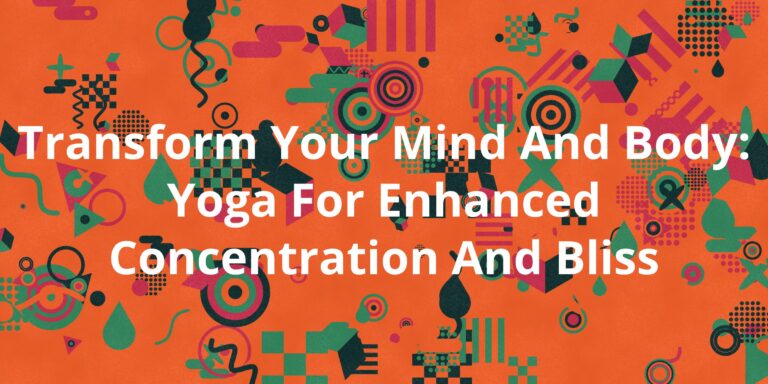Yoga is an ancient practice that has been around for thousands of years. It originated in India as a way to unite the mind, body, and spirit, and over time it has become popular worldwide for its physical and mental health benefits. In this article, we will explore the psychological science behind yoga practice and how it can transform your mind and body.
The Mind-Body Connection
Yoga teaches us that our thoughts, emotions, and physical sensations are all interconnected. Our thoughts and emotions can affect our physical body, and vice versa. For example, when we are stressed or anxious, we may experience physical symptoms such as muscle tension, headaches, and difficulty sleeping. On the other hand, when we practice yoga, we learn to observe these sensations without judgment and to cultivate a sense of calm and relaxation in our bodies.
The Science of Mindfulness
Mindfulness is a key concept in yoga practice. It involves paying attention to the present moment without judgment or distraction. Mindfulness has been shown to have numerous mental health benefits, including reducing stress, anxiety, and depression. Research has also shown that mindfulness can improve cognitive function, such as memory and attention.
The Power of Breath
Breath is an essential component of yoga practice. Yogis believe that the breath connects us to the divine and helps to calm the mind. The science behind this belief is that the breath has a powerful effect on our bodies. For example, slowing down our breathing can help to reduce stress and anxiety, while deepening our breath can help to increase oxygen intake and improve overall health.
The Benefits of Yoga Practice
Yoga practice has numerous physical and mental health benefits. Physically, yoga can improve flexibility, strength, and balance. It can also help to relieve chronic pain and reduce the risk of injury. Mentally, yoga can reduce stress and anxiety, improve mood, and increase feelings of well-being. Yoga has also been shown to improve sleep quality and boost cognitive function.
How to Start a Yoga Practice
If you are interested in starting a yoga practice, there are many resources available to help you get started. You can take a class at a local yoga studio or watch online videos. There are also many books and apps that provide guidance on yoga poses and breathing techniques. It is important to start slowly and listen to your body as you practice.
Conclusion
Yoga practice has numerous physical and mental health benefits, and it can help to transform your mind and body. By cultivating mindfulness, focusing on the breath, and practicing yoga poses, you can reduce stress and anxiety, improve cognitive function, and increase feelings of well-being. Whether you are new to yoga or have been practicing for years, there is always more to learn and explore. So why not give yoga a try and see how it can enrich your life?



